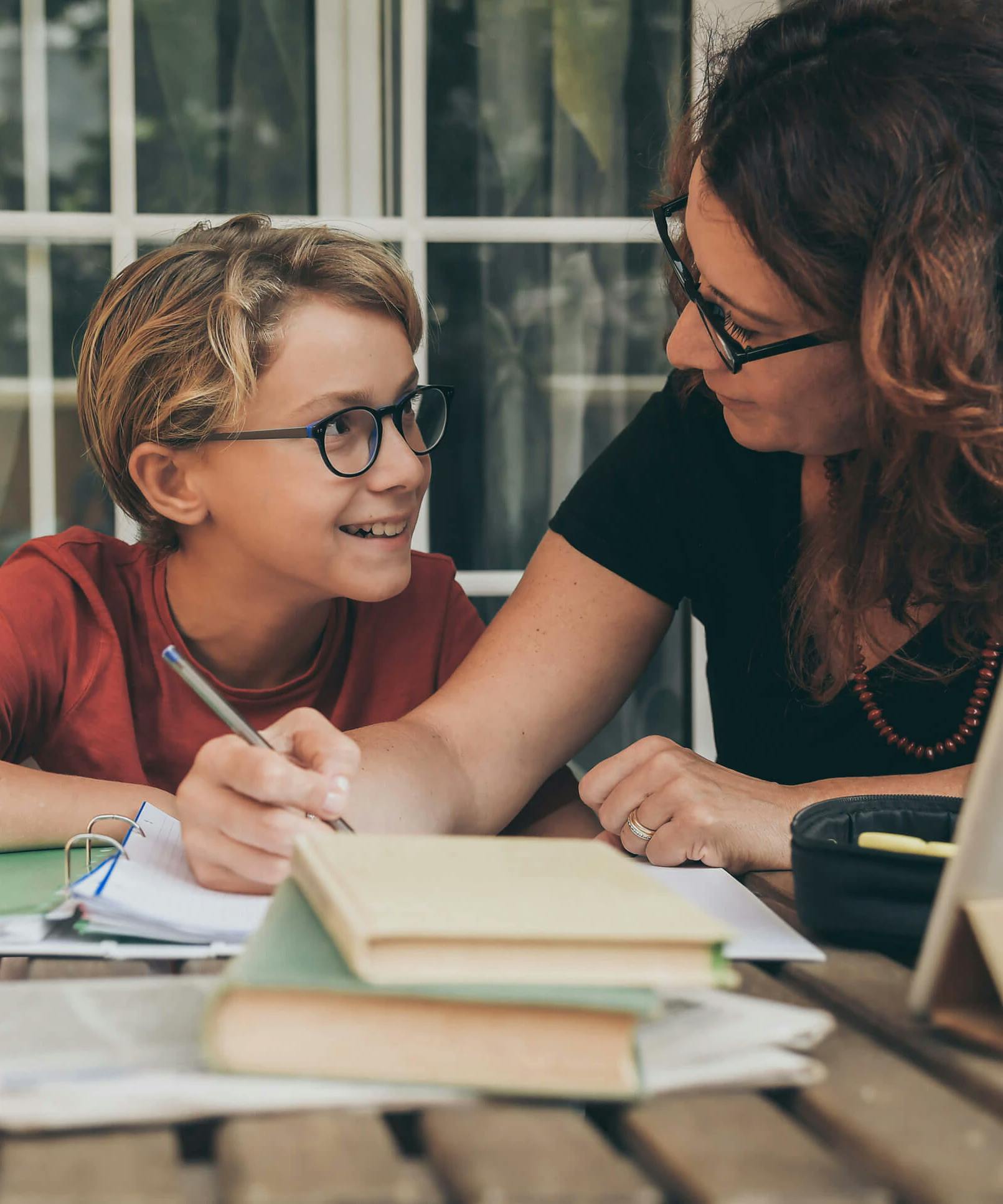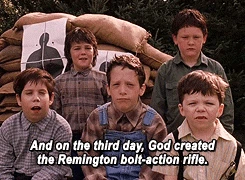The Pandemic Is Busting These Persistent Homeschooling Myths
Some say stereotypes exist for a reason, but the stereotypes long surrounding homeschooling have been uncharacteristically harsh.

The first two minutes of Mean Girls essentially sums it up: homeschooled kids (and the parents responsible for them) are unsocialized, awkward, usually religiously fundamental or politically right-leaning, country bumpkins.

But alternative options to public school are skyrocketing in popularity, both in response to school lockdowns and mask mandates and the not-so-subtle dissemination of certain political ideologies in classrooms, making homeschooling for many a viable solution. Even so, the stereotypes remain and education activists and academics are coming out in droves to maintain incorrectly held assumptions about the trend, begging the question: why does everyone pile on homeschooling so much?
Homeschooling Has Long Been Discredited
Modern homeschooling as we know it today began to take shape in the latter half of the 20th century, under the guidance of philosophical minds like Raymond Moore and John Holt. Moore and Holt argued for a system of “unschooling,” wherein children are schooled at home through age nine in order to build “a firm educational, psychological, and moral foundation.” The pair argued that the modern education system treated students more like employees with reliance on rote learning (or repetition-based learning) instead of children seeking enrichment through learning.
When Moore and Holt’s theories began to result in actual changes in schooling in earnest, students, their families, and advocates began to receive backlash from local and state policymakers, who commonly argued across the board that public schooling was best for each and every child. Opposition was strengthened in the 1980s when homeschooling began to be heavily utilized by Christian parents amidst the so-called Satanic panic, which allowed school boards and administrators to brand parents choosing homeschooling as crazed religious lunatics. Nowadays, data from the National Household Education Surveys Program reveals that when it comes to the exact reasons why parents homeschool, many cite “a concern about [the] environment of other schools” and “a dissatisfaction with academic instruction,” not religious influence, as the main motivations behind their choice of education for their children.
Many parents cite the school environment or subpar academics as their main reason to homeschool.
Arguments against homeschooling have remained the same though. Activists and academics point to homeschooling as being “harmful” to children for the supposed over-dependency homeschooling children will develop on their parents, the financial strain on households, the lack of socialization, and an apparent lack of qualification of parents to teach their own children.
Parents’ Dissatisfaction with the System
Despite the seemingly overwhelming number of reasons many avoid homeschooling, as a form of education, it’s more sophisticated now than it’s ever been. Families who homeschool are subject to different standards set forth by their states, but they can often find support in their local communities through coalitions and cooperatives.
The numbers reflect its popularity as well, especially within the last two years. According to the National Center for Education Statistics, there were 850,000 homeschooled students in the U.S. in 1999. In 2016 (four years before the onset of the pandemic), the number totaled 1,690,000. Though the number of white families who are homeschooling has decreased since 1999, the number of Hispanic families has seen a sharp increase, with fluctuations in the number of Asian and black families. We now have concrete numbers as to the increases from the past two years. In 2020, homeschooling saw a 2.1% increase (from 3.3% in 2019 to 5.4%). By 2021, the percentage had risen to 11.1, with huge increases in the number of black families taking their kids out of school and opting for home education.
As of 2021, 11% of households with school-aged children are now homeschooled.
Many parents admit that the pandemic opened their eyes to the state of the education their children were receiving, especially because of struggles and frustrations with distance learning. Many rightfully questioned the quality of both the instructors and the curricula they were seeing their kids receive over Zoom – and now, with talks of closing schools once again and the strongarming of local unions and school boards, homeschooling has understandably offered the alternative many are seeking.
Students Don’t Belong to the State
For countless parents, the move from public school to homeschool is political. Cases like the attempted cover-up of sexual assaults of female students in Loudoun County, Virginia offer just one example of how public schools have escaped scrutiny and attention for far too long, putting their school boards out in front of scandals (or ignoring them altogether) and punishing parents and victims when they’re inevitably discovered. Not only that, but school boards, especially in more progressive districts and with influence from teachers’ unions, deny any wrongdoing while pushing left-leaning ideological policies on their students.
Then there are debates over school-implemented mask mandates, and the recent announcement by the Los Angeles Unified School District (the second-largest school district in the country) that they were firing almost 500 unvaccinated employees and mandating the vaccination of all students ages 12 and older. 34,000 students within the requirement remain unvaccinated, thereby motivating the district to later amend its mandate requirement from January 2022 to September 2022.
Homeschooling remains unpopular because it represents the decreasing authority of the state.
As more and more revelations have drawn the ire of parents, school boards, activists, and teachers have fought back – with one political candidate declaring that parents shouldn’t have a say in the public school curriculum their tax dollars pay for, even when those tax dollars fund gender-neutral bathrooms, critical race theory, or sexually explicit content available to young students.
Here’s what the debate really comes down to though. This isn’t necessarily about parents versus school systems, right versus left, or homeschooling versus public school. It’s about power and control, and how it took a global pandemic for parents to realize that their children were being treated as the property of the state. When parents naturally resented that treatment and took back control over their kids’ education, school boards and the activists at the forefront turned the tables, claiming that parental intervention, not radical ideologies, was really the damaging factor in schools. Homeschooling remains unpopular to many because it represents a role reversal and the decreasing authority of political lobbies, unions, school boards, activists, and politically-motivated educators.
Closing Thoughts
Homeschooling has empowered many families, of all shapes and sizes, to finally play a part in what their children are learning. It’s empowered religious families to teach their belief systems and for others to ensure that their kids are not studying harmful content or political talking points at younger and younger ages. It’s also enabled parents to address the individual needs of their kids, whether those needs are disability-based or otherwise. For many, homeschooling provides an individualized, holistic approach for the needs of each child, and not a classroom as a collective.
Those in opposition who argue that homeschooling is a sacrifice for parents aren’t wrong. But the cost, inconvenience, or financial aspect hasn’t prevented millions of parents from pulling children out of schools in the past two years.
Parents have made it clear that they do have a say in education, especially when it comes to their children and their tax dollars. If anything, they’ve just spent the past few months proving it, and for some, their examination and reflection of their values and the education they want for their children is just beginning.
Readers make our world go round. Make your voice heard in the official Evie reader survey.